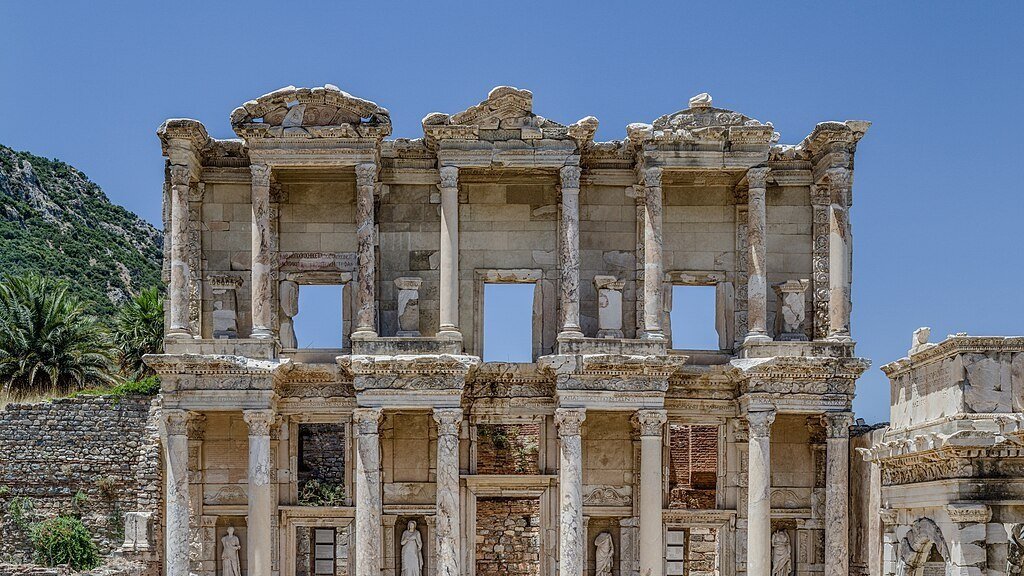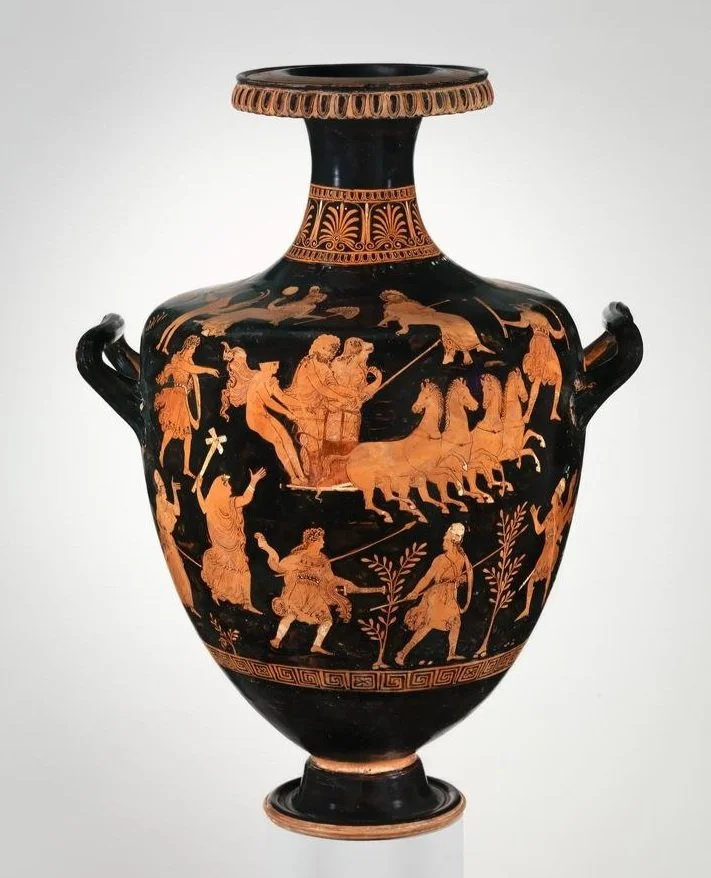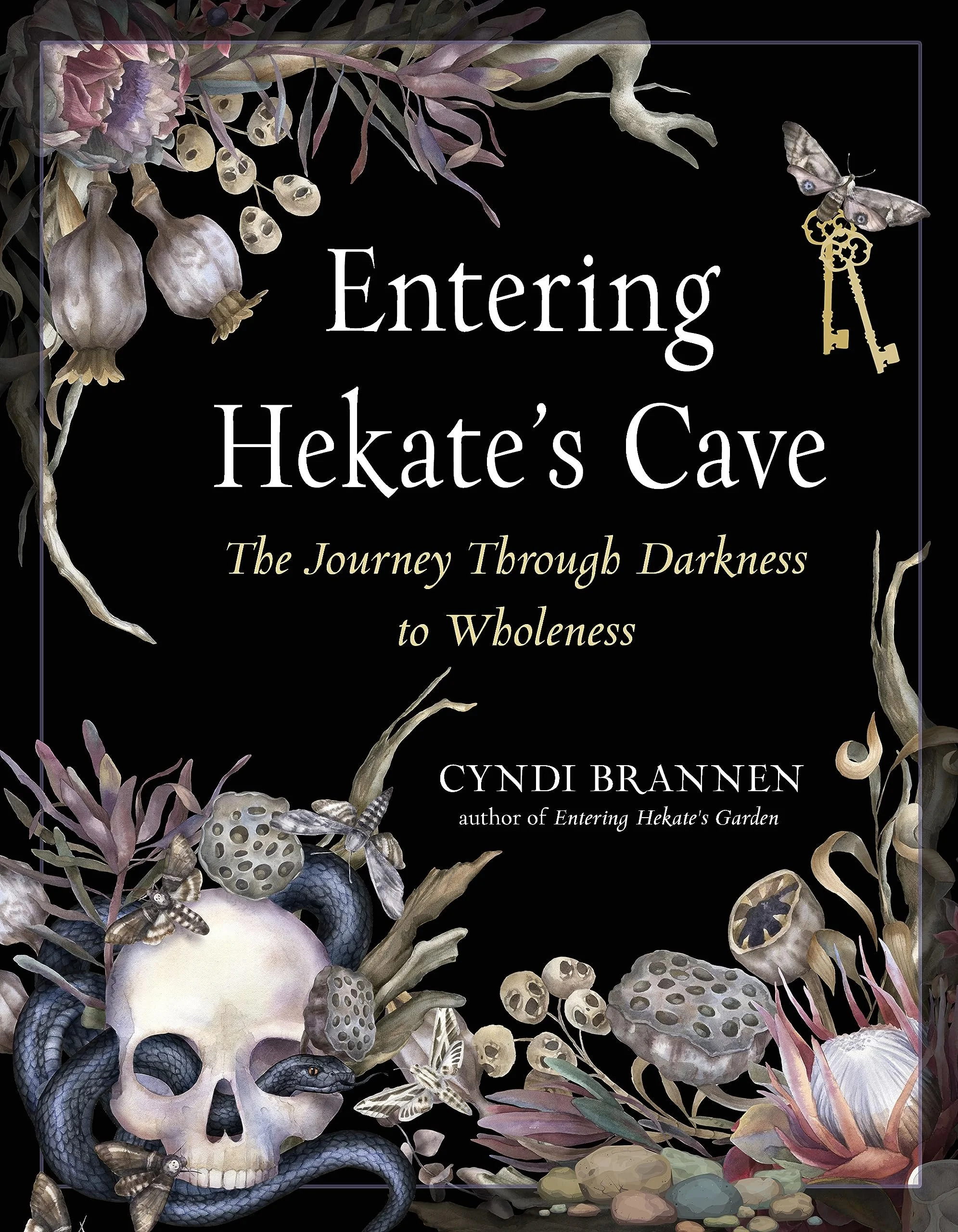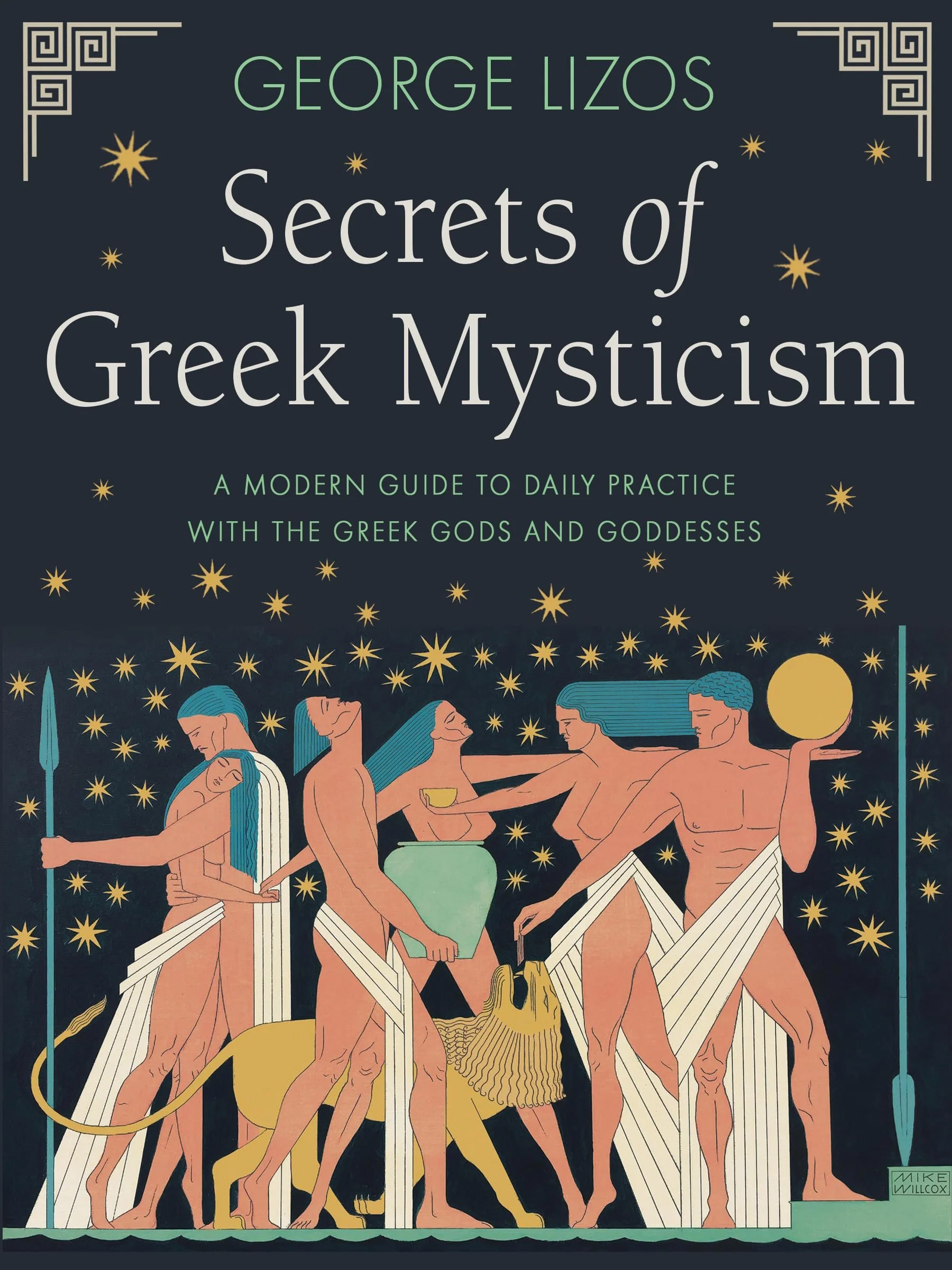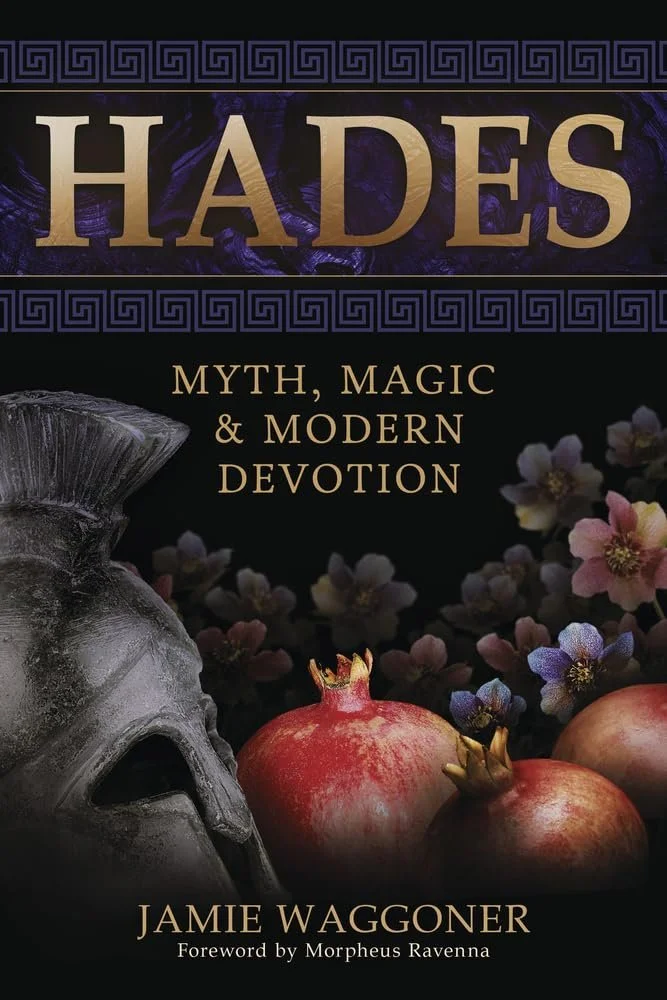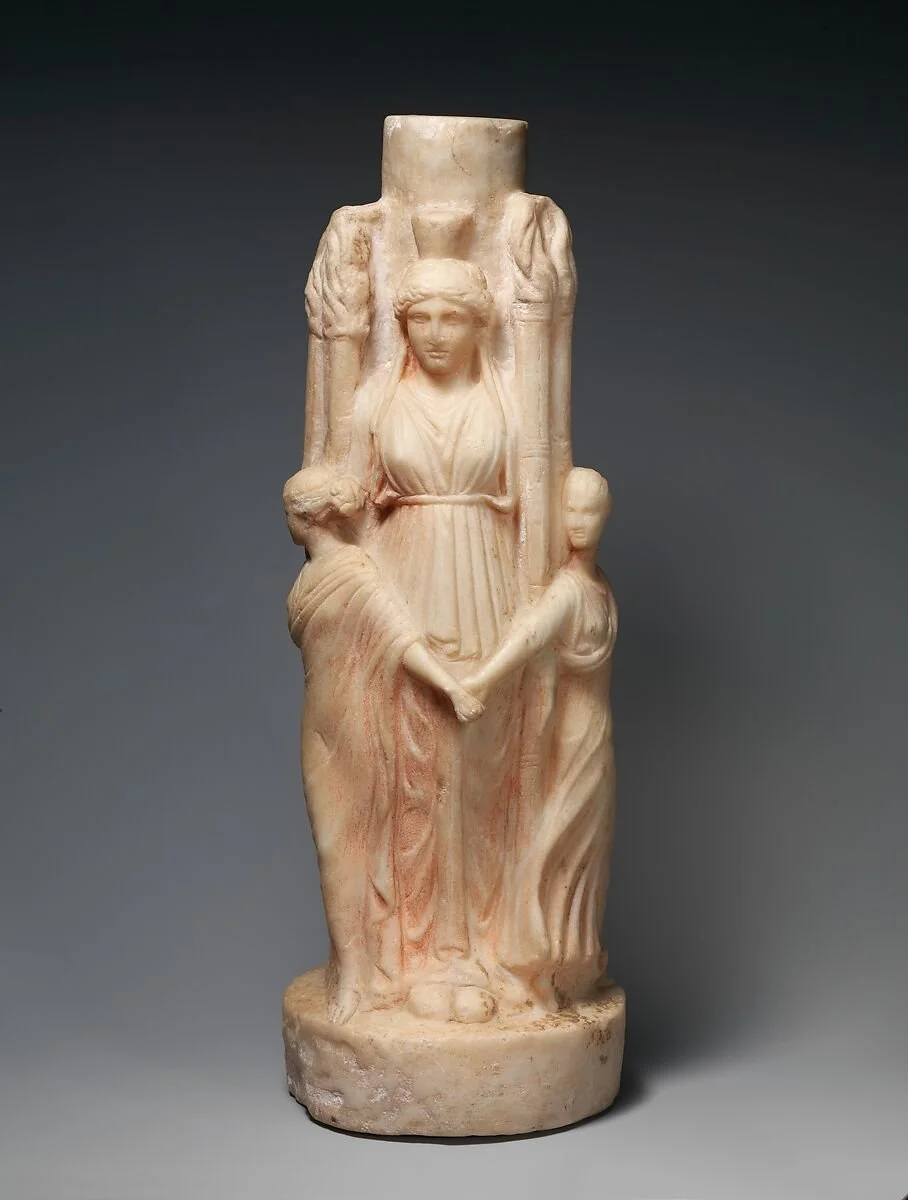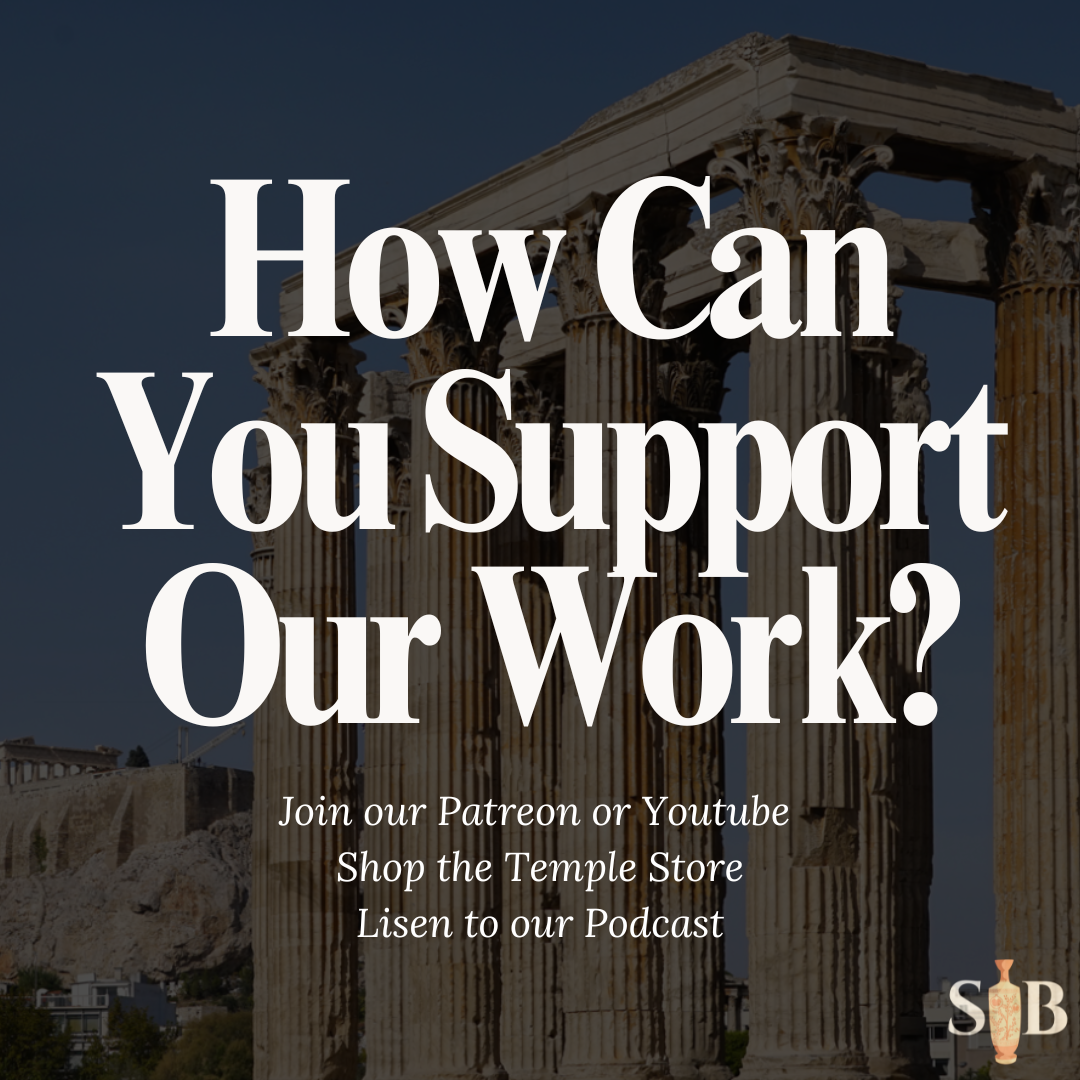How To Find Reliable Sources On The Greek Gods
Understanding The Past One Source At A Time
Here at Styx and Bones, we are often asked about good sources for understanding ancient Greek history, religion, and more. This is understandable, given that online forums often prioritize individuals who have written books in the realm of spirituality over actual scholars or primary sources.
Even when individuals hold academic titles, there is more than meets the eye. As viewers or audiences, we need to be cautious about the content we consume because, unfortunately, the sensationalization of spirituality has become increasingly popular online, leading many to listen to those with no background in the subject matter they are discussing. That is not to say that no one can write on the topic of ancient Greek history, religion, or other related subjects; rather, this is meant to begin a deeper discussion into how we can critically consume content.
A Critical Review of “Scholarship”
This blog will not only cover our recommendations here at Styx and Bones but also highlight red flags and reviews of some of the leading books that frequently appear online, such as Entering Hekate’s Cave by Dr. Cyndi Brannen, Secrets of Greek Mysticism by George Lizos, and Hades: Myth, Magic & Devotion by Jamie Waggoner. This is meant to arm you as you delve into your own research, so, as author and scholar of religion, Dr. Dan McClellan writes, “think critically, Google competently.”
Where Does One Begin?
You may have asked yourself this already, and I know this will sound like a broken record, but the best place to start is at the beginning. As in primary source material.
Why?
This will provide you with original texts from those who lived over two thousand years ago, revealing how they viewed and understood the world around them. Primary sources could even be argued to be material culture as well. The archaeological remains, paired with the literary documentation, allow us to piece together the past bit by bit. It’s a lot, I understand, but the best place to start would be with some of the following (which include but are not limited to):
Homer
Hesiod
Homeric Hymns
Orphic Hymns
Herodotus
Sophocles
Aristophanes
Socrates
Plato
and more!
Yes, you may have noticed, playwrights and philosophers. They all played a role in their society and offered insight into what mattered to them, as well as their core ideals. When examining art, such as plays, we can see which stories people felt a connection to. It’s these stories, plays, ideas, and artifacts that allow us to still talk about them today! To understand the past, all available evidence should be examined; otherwise, we risk misrepresenting the material culture, textual evidence, and other relevant sources.
Iliad. Book 10. 421-434, 445-460, Egypt, second century B.C.E.
Papyrus, 137 x 125 mm.
I’ve Read Those, What's Next?
We can now move on to secondary sources. What are those? That would be the case if I were to write an article on the meaning of power through the construction of images of killing in ancient Greece; that would be considered a secondary source.
Why? Because a scholar analyzes and interprets primary sources/ material culture through their theoretical and methodological approaches. As always, your best bet will come from scholars. Namely, those with backgrounds in ancient history, art history, religion, anthropology, classics, and more, but that’s not enough.
Our Recommendation?
I recommend examining the author’s professional work to understand their perspective and interpretation of the material they publish, including their theoretical and methodological approaches. In almost all academic work, this will be present.
Is ____ a good book for this topic?
We receive this question more often than you might know. The answer is simple. If they are not a scholar in the field they are writing about, and there is no peer review, you should be cautious. Why? Well, this can lead down a slippery slope full of misinformation.
Academic Understanding Matters
If they are not trained in the subject matter they are publishing about (such as archaeology, ancient history, or classics), their methodology could mislead many, even though they use terms often found in those fields. Their bias may also lead them to interpret the past through a modern lens and attribute functions, meaning, and significance to a text or object without evidence to support it.
They may also cherry-pick facts to fit their narrative to their desires. This is dangerous and can lead to the proliferation of conspiracy theories, alt-history, and pseudo-archaeology, as well as mistrust of academics due to over-sensationalized claims.
Funerary Vessel with the Abduction of Persephone, South Italian, made in Apulia, 340–330 BC, terracotta. Red-figure kalpis. The Metropolitan Museum of Art, New York.
Who Is Writing And Why?
This is a key point to ask yourself! It would be like if I were to write a paper or article in the field of science. Although I hold a PhD, my degree is not in biology, chemistry, or a related field. So, why would I be writing about it if I wasn't trained in the field, if I misuse the terminology, and cherry-picked data sets to fit my hypothesis? It wouldn’t make sense, and a massive downside of this is that someone may believe it. Thus, the misinformation continues down a slippery slope.
How Do I Determine If The Source Is Good? Peer Reviews!
As stated above, for scholars to publish in an academic setting or journal, it must be peer-reviewed. This does not mean your best friend reads your article or book and gives you a thumbs up. In simple terms, peers in your field (for me, those who hold doctorates in art history and archaeology) come together to accept or reject your work.
Think of it as quality assurance. Your reviewers make sure you have met the standards of the academic journal, you are aware and up to date on the current scholarship, it does not have flawed interpretations, and it is original. If there is no peer review, but the individual is pushing it as the greatest thing since sliced bread in the realm of ancient Greek history, religion, or more, I’d have a few questions.
Beware, Experts Everywhere
Today, anyone can claim expertise, and even those with credentials publish their work as unquestionable truth, meaning it's more important than ever to critically examine their work, their sources, their background, and the peer review. Scholarship is about transparency, not authority for authority's sake.
Styx and Bones Reviews…
To offer you some food for thought and help equip you with what you should look for, I end with briefly looking over some of the most requested books that Styx and Bones review. This is all we will say about it. The group includes works by Dr. Cyndi Brannen, George Lizzos, and Jamie Waggoner, who together cover topics on Hekate, ancient Greek mysticism, and Hades.
Entering Hekate’s Cave by Dr. Cyndi Brannen
Beginning in alphabetical order, Dr. Brannen has written multiple books, all centered around the ancient Greek goddess Hekate. She holds a PhD in applied social psychology, but upon closer examination of her work, questions arise, particularly since it is neither peer-reviewed nor academic.
Although her books are entitled after the name of the goddess, one wonders where the historical background lies, or a history of how Hekate was viewed in the ancient world, with an unbiased theoretical and methodological approach. This modern interpretation strips away almost any semblance of who she is, instead adopting a psychological approach to guide them through their soul's healing, a concept not found in ancient history (Entering Hekate's Cave, 2023). It also attributes modern titular aspects to a goddess who never possessed such qualities (e.g., witchcraft and ancient magic were not viewed as such; Witch Mother).
Now, that is not to say that one cannot use psychoanalytical approaches to aid in their interpretation. Still, it is unclear how this book fits into the realms of history, religion, anthropology, and more. There are issues in her other books as well, which is a trend within the neo-pagan or New Age spheres of melding witchcraft with ancient Greek religion or magic practiced in ancient Greece (Keeping Her Keys, 2024), without any evidence to highlight these claims. Buzzwords run amok here; reader beware, especially as none of her work is peer-reviewed.
Our Review
Our honest review: Stop the buzzwords. We have done multiple episodes not only on Hekate as an ancient goddess, her roles, epithets, and more, but we have also dispelled the modern neo-pagan/new age belief that ancient Greek magic and witchcraft are the same and have combated against placing modern titles on a god/ goddess when they were never seen. A scholar who writes on topics such as this would be familiar with these nuances rather than exploiting them.
Do we recommend her work? No.
Looking for Information on Hekate?
If you're looking for more information on Hekate, her epithets, and her portrayal in antiquity, check out our episodes on her here.
Secrets of Greek Mysticism by George Lizos
Next comes from George Lizos. Mr. Lizos has published many books in the sphere of self-help and spirituality. I will come back to this at the end. Mr. Lizos does not have an academic background in this area; readers should be aware.
His most recent publication, Secrets of Greek Mysticism: A Modern Guide to Daily Practice with the Greek Gods and Goddesses, published in 2024, initially captures the audience’s attention with claims of “scholarly wisdom.” Opening the book, which again is not peer-reviewed, one wonders where the citations are for the claims Mr. Lizos is making. These claims are shaky at best, with buzzwords used to lead one to believe they are well-researched facts.
The claims are also surrounded by a plethora of new-age spirituality terms, such as “lightworker” and “high vibrational,” among others. Nowhere in primary texts or material culture does this exist. And any scholar today in the realm of ancient Greek history or religion has used these terms. These new-age terms also distract from the author's misuse of terminology seen in the field.
Moving on, there is a lot to be desired in the section concerning the characteristics of the gods; again, where are the citations? And for the larger concepts, the slippery slope of misinformation continues to push those who read this book in the wrong direction.
“Scholarship” or Sensationalism?
Now, where many people critique who Mr. Lizos left out in terms of gods in the pantheon, the biggest red flag here is the melding of chakras with ancient Greek religion and crafting meditations for the readers to directly connect with these gods.
In my opinion, this is very dangerous and highly sensationalized. Ancient Greek peoples in the Mediterranean world never would have used either of those as a means to “connect” with the gods, they would have used hymns, prayers, and more such as music and song, as evidenced by findings in the archaeological record.
New Age Additions to Ancient Texts
Chakras also have nothing to do with ancient Greek religion; they are known in Hinduism and Buddhism, which are two distinct belief systems. These beliefs being written in a way that suggests they are part of an ancient practice with evidence to back it up, is misleading and misinformation first and foremost. I am confused and concerned why more people are not discussing this.
Do we recommend him? No.
Looking For Accurate Information On Ancient Magic?
If you're looking for more information on how the ancients connected with their gods and how they were worshipped, you can check out our free podcast on the topic here.
Hades: Myth, Magic, & Modern Devotion by Jamie Waggoner
Last but not least, Jamie Waggoner, who has written Hades: Myth, Magic, and Modern Devotion (2024, not peer-reviewed). Again to anyone passing by the shelves of a book store or even perusing what online retailers are selling this will peak anyone’s interest looking for mythology namely with the name Hades lining the cover.
Art Matters
Before we even delve into the content, a note from me: I am confused about the choice of helmet for the cover. This may be in reference to the cap of invisibility but early texts note it is a cap; but as a scholar of ancient weaponry, I am confused at the choice of a plumed corinthian helmet that appears aged in stone rather than bronze of the typical type with pressed plumes, I know that this is splitting hairs, but nuances should be noted. The earliest use of this is in the Iliad, where it is a cap, set at the end of the Bronze Age. The Corinthian helmet here does not appear until the Archaic period.
Bibliography Vs. UPG
Delving into Ms. Waggoner, while she holds a BA and other credentials, there is no background in the subject matter that she is writing on, which she herself also admits in the introduction, “It is meant not to be read as academic mythological theory. I am not a trained Classical scholar, nor am I a Hellenic reconstructionist Pagan…(18)”.
I appreciate the honesty, but I must then ask what the purpose of this book is for the audience, as she then follows with what appears in this book comes from her own practice, and will cite where necessary. In lamens terms, using UPG with little to no evidence.
A Warning
I am also weary of why one would read this, as there is a warning at the beginning pertaining to mental health. I understand when books, especially for those who consume book recs from BookTok or Books of Instagram or even those in academia, carry TW or CW, they are due to the themes or images within.
If this book is about a Greek god and his history and the religion he is part of, I have some questions as to the premise of this book when issues of mental health or medical issues are part of a disclaimer. Sure, in my class, I give prior warning when human remains are shown or discussed, but for this book about a Greek god and his mythology, I’m concerned.
Theory and Methodology
While Ms. Waggoner does denote that she is a’s approaching the topic through “post-modern paganism,” she never discusses how this ultimately influences the book or why one would want to take this approach. I argue there’s a reason for that.
Yes, postmodernism is a theoretical approach that is seen in both art history and archaeology, and when applied, can lead to broader discussions, especially in cases where we remove our own biases from the object.
For example, if we were to excavate a cup from a site, postmodernism prompts us to re-examine it. Is it truly a cup? Or are we saying that because it resembles what we know a cup to be today? It’s confusing, trust me I know!
Turning A Blind Eye to Facts
But this theoretical approach throughout this book is simply a transparent veil for teaching the audience to cherry-pick information that doesn’t fit their worldview. Any scholar knows how dangerous this is.
In many cases, this may be why so many people are pushing pseudo-mythology, alt-history, and more, because people claiming to be teachers on a subject are pushing this idea that it is ok to remove religion, history, and more from its context as long as it makes the individual feel good. It’s harmful and not ok.
Retelling Or Fabrication?
Lastly, as I conclude, the book's narrative is confusing at best. Each chapter opens with a retelling of a myth through the lens of Hades. Is this a retelling? There is nothing wrong with retellings, so many acclaimed authors like Madeline Miller (Song of Achilles) or Jennifer Saint (Hera, Elektra, Ariadne) have done great work in the realm of classical retellings.
However, to suggest that this is coming directly from Hades is both dangerous and worrisome. The lack of scholarly sources in favor of blogs, webtoons, podcasts, Instagram accounts, and more suggests that the matter is not scholarly, and readers should be cautious of buzzwords that misrepresent factual information. I am overall confused.
Do we recommend her? No.
Looking for accurate information on the King of the Underworld?
For more on who Hades is, check out our series on Hades and other Greek gods on our free podcast! This episode specifically delves into the lesser-known side of both the King and Queen of the Underworld. Check it out here.
Fact Over Fabrication
Here at Styx and Bones, in this day and age of online information and hallucinations from AI, our goal is to provide correct and scholarly information on the past. Why? Because we know it is a hard topic to study and cover, especially if you are new to the field!
We understand that not everyone was able to study religion, classics, archaeology, or take latin or greek in college, we understand accessibility issues, and this is why we would never be promoting anyone who is not a scholar.
Many new age authors have reached out to be a part of our podcast, including some listed above, but on the basis of what Styx and Bones is and our purpose, we will never promote those who are not peer-reviewed or scholars for clout and views.
At the end of the day, ask yourself this: Why are you listening to people/ reading the works of those who have no background in the field? Who is not using scholarship? Who is promoting pseudo-mythology, pseudo-history, and more?
The Dark Side
To me, the works by the authors above promote the same misinformation as History’s Ancient Aliens, where Egyptians didn’t build the pyramids. Conspiracies and misinformation like this is a slippery slope of bad, so why do we continue to fall into the pitfalls?
Fragment from Herodotus's Histories VIII on Papyrus Oxyrhynchus 2099, early 2nd c. CE. Papyrology Room, Sackler Library, Oxford.
Evolution Of The Ancient Gods?
I know many of you may be asking the question back to me here along the lines of “well gods can change over time.” So let’s unpack this quickly as this in the future will need its own discussion post. To say gods change overtime with no evidence other than feelings is incorrect.
The only way one could correctly say this is with evidence from what we have available rather than cherry picking evidence as the above authors do.
Change Or Evolution?
For example, you could propose that Medusa changes over time. Sure, but not in 2025. What I mean to say is the only argument here would be looking at the original texts she appears in pre-7th c BCE, and compare it to how Ovid later re-writes her story centuries later.
You could also say, “Here is how her art changes as well, noting that in Archaic Greece, she appeared as ____, then during the Hellenistic and Roman periods, she appears as ____.” That’s the argument that holds. What doesn’t hold is simply picking a god and a concept and melding them together under the guise of “evolution” (ex, Hades and self-love).
False Advertisement
I understand that this is a lot to take in, and returning to a point I made earlier about books under the subheadings of self-help, Wicca, witchcraft, and more, I think we all need to be more critical when viewing these books as they appear in search engine results for online retailers. Rather than searching for books on Greek gods with witchcraft, as this does not exist, try looking at ancient Greek religion or ancient Greek history.
Marble hekataion (statuette of triple-bodied Hekate) and the three Graces, Roman, 1st–2nd century CE. Image courtesy of the Metropolitan Museum of Art, New York.
Research Tips and Tricks
And since I never want to pose a problem without a solution, here are my tips to you that I teach my students each and every term to help them on their research journey. When reading anarticle or a book you can outline the following:
Who is the author? What is their background (degree, schooling, major, etc.)? Have they published? Should we trust them and why?
Tip: If they are not a scholar ask why you are reading anything by them. And even if they are a scholar, do not simply stop there, examine further. A degree does not mean scholars are immune to criticism! That’s what peer-reviewing and discourse is for!
Tip: If they are presenting themselves as a teacher, do they have a teaching credential/ license or PhD? I myself was not able to teach until I was ABD (all but dissertation done) to show I knew the course and subject material. My PhD (for my field) not only allows me to teach college courses, but at highschools as well. So, those who are writing, teaching or you are following, are they actually what they preach?
What is their thesis? What is the purpose of the work (paper, book, etc.)?
Tip: if you don’t know a word they use, look it up! We have the advantage of knowledge at our fingertips. No one knows every word and it is not a bad thing!
Is this scholarly?
Tip: This can be hard and many times deceiving as blogs will often come off as scholarly. For more I recommend this website that I share with my students to aid you in your journey here.
What evidence did they use?
What is their conclusion? And is it supported?
And most importantly, do you agree with them? Use your knowledge here! Not everything written by scholars is agreed with in the field, trust me! It’s ok to not agree, but I would ask what do’t you agree with and why? ALWAYS ask yourself why! If it is because it goes against something you believe, ask yourself why that is? Back it up with evidence! Remember facts over feelings!
Final Thoughts
Shifting through scholarship on any topic can often feel like a Sisyphean task. No one is asking you to understand it all in one day, nor should you feel that you should. Academics spend years of their life researching, and while some answers will come about, more often than not, more questions arise!
Remind yourself that social media is ultimately fake, and not only think critically but also consume critically. Sure, you may come across an interesting factoid or quote online, but fact-check it. Ask those who you follow for their source or news outlet they are referencing (if pulling archaeology finds).
For those looking to delve deeper into ancient Greek religion, it is essential to understand that it is a religion, so ask yourself why there is such a desire to sensationalize the sacred. Why makeup facts when we have incredible artifacts and texts preserved? Although it may not be as extensive as Egypt's, we are still fortunate to have them thousands of years later.
Nike Fixing Her Sandal, Acropolis Museum, Athens, 420-400 BCE. Photo: T. Kellenbarger 2025.
My final thoughts include this: why are scholars and scholarship in general not highlighted, in favor of sensationalized fiction? The idea of “connecting” to the Greek gods is not likely to be found in a book by non-professionals, as the modern new-age version of connecting is not one the ancients would have done or believed in.
Again, the rebuttal of “well ideas and practices can change”, may come up to which I reply, where is the discourse on that? When new doctrines were introduced or revised in Catholicism or Early Christianity, leaders came together to discuss them. While we do not have that today in the same sense, we do have archaeologists and historians working to piece together the past, thereby better understanding the world of the ancients. They come together over edited volumes to offer their own edits and additions to promote larger discussion that has been peer-reviewed, and present their forthcoming work at conferences!
Delve Deeper into History, Support The Work of Styx and Bones
If you are looking for more on the ancient Greco-Roman world for historical sources, ancient religion, and more, you can check out our free content on all streaming platforms and YouTube, or you can support our work on Patreon. We are delving into the niche of the ancient past, including book recommendations, epithets, and more historical information on the gods and their worship!
From us to you, we hope this aids you in your research journey!
Styx and Bones

